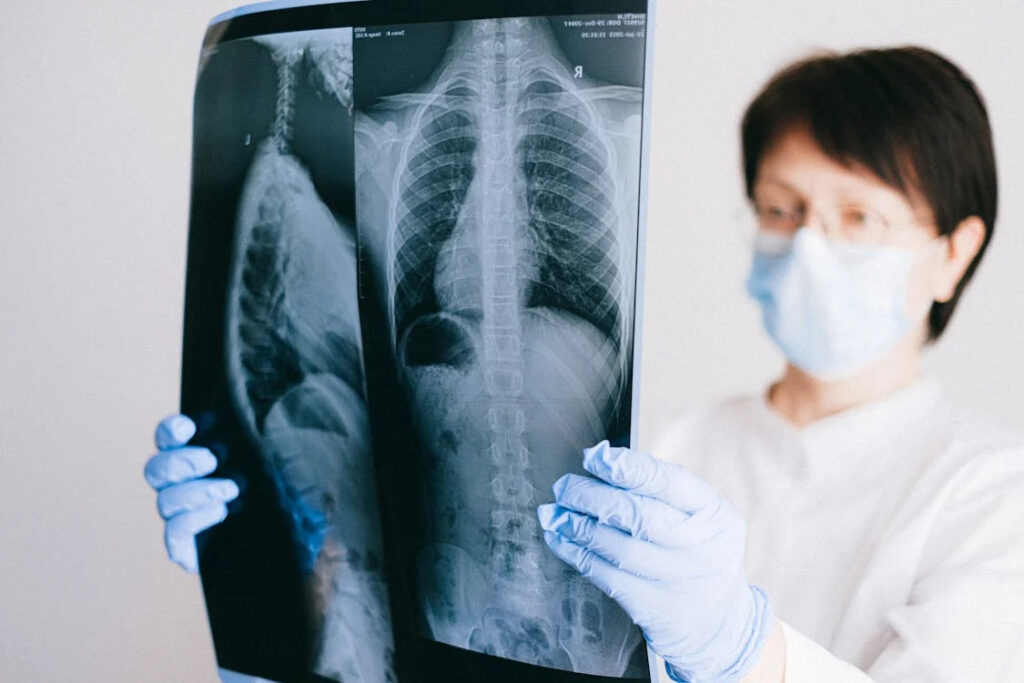AI Reveals Critical Link Between Lung Cancer Radiotherapy and Cardiac Arrhythmia Risks
Artificial intelligence (AI) integration into healthcare is producing revolutionary insights, especially in the management of difficult diseases like cancer. Using AI methods, Brigham and Women’s Hospital researchers have investigated the relationship between radiation for lung cancer and the following risk of cardiac arrhythmias. Through careful mapping of the heart’s substructures, the researchers were able to forecast the danger of certain forms of cardiac arrhythmias linked to radiation exposure, therefore offering a vital knowledge that might guide next treatment strategies.
Development of the AI Tool
Analyzing a vast dataset of patients treated with radiation for non-small cell lung cancer (NSCLC), the study team used cutting-edge artificial intelligence techniques to estimate radiation dose exposure across 748 individuals, the AI-driven technique made it possible to segment particular cardiac substructures like the conduction system and the pulmonary vein. This computerized analysis greatly shortened the time needed for such research and hastened the detection of important trends and links between radiation exposure and the beginning of cardiac arrhythmias. Published in JACC: CardioOncology, the results highlight how artificial intelligence might simplify research and improve our knowledge of hazards associated to treatments.
Mechanism of AI in Predicting Arrhythmias
Predicting and classifying the kinds of cardiac arrhythmias that could arise after lung cancer treatment was mostly dependent on artificial intelligence. The study found that the dosage received and where areas of the heart are exposed to radiation determine the likelihood of arrhythmias. By means of a thorough retroactive study, the researchers identified particular arrhythmia subtypes—atrial fibrillation, bradyarrhythmia, and ventricular tachyarrhythmia—that, given the pathophysiology of the exposed cardiac structures, are more prone to arise. This detailed knowledge makes it possible to create more customized and exact radiation programs reducing the danger to patients’ cardiovascular condition.
Implications for Oncology and Cardiology
This study emphasizes the importance of multidisciplinary cooperation by bridging the gap between cardiology and cancer, therefore having broad consequences. Oncologists can better tell patients of possible cardiovascular issues and collaborate with cardiologists to lower the risk of arrhythmias connected with radiation treatment by utilizing artificial intelligence to forecast these risks. The prediction model of the study is also a useful tool for enhancing radiation therapy procedures and allowing exact sculpting of radiation dose to prevent high-risk cardiac areas. This strategy not only improves patient safety but also opens the path for more generally including artificial intelligence into healthcare decision-making procedures.
Impact on Future Cancer Treatment
Particularly in terms of how radiation is given to lung cancer patients, the results of this AI-driven study have great influence on the direction of cancer treatment. More individualized and safer treatment approaches resulting from the capacity to forecast and lower the risk of cardiac arrhythmias would help to lower the chance of major cardiovascular events following therapy. Furthermore, the success of this work emphasizes how artificial intelligence might transform radiation oncology research and provides fresh paths for discovery and the creation of bigger, more all-encompassing databases. AI is becoming more and more important in improving patient care and treatment results as it develops, hence it will probably help in the battle against cancer more widely.
Researchers at Brigham and Women’s Hospital have creatively applied artificial intelligence to provide important new understanding of the link between lung cancer radiation and cardiac arrhythmias. The work not only clarifies the cardiotoxic effects of radiation but also creates new routes for safer, more efficient cancer therapies by mapping cardiac substructures and forecasting arrhythmia hazards. Precision medicine marks a new era as artificial intelligence (AI) keeps being included into medical research and practice shows its ability to enhance patient outcomes and simplify treatment procedures.


